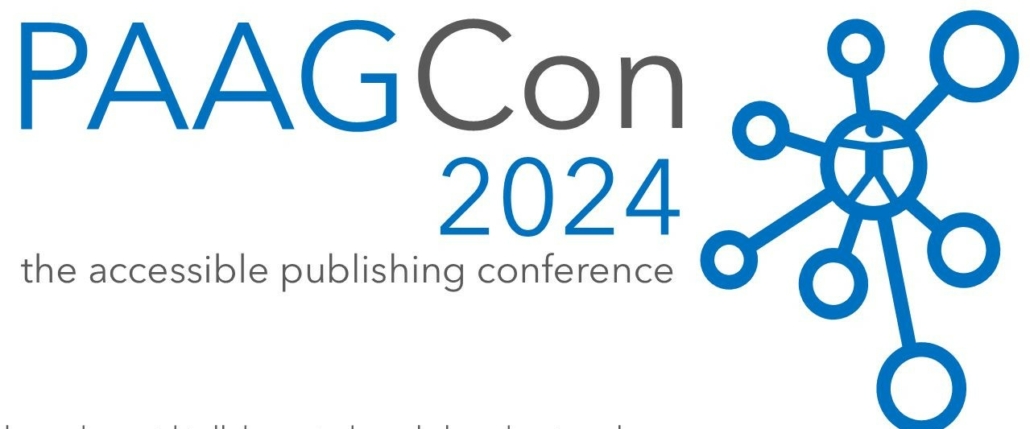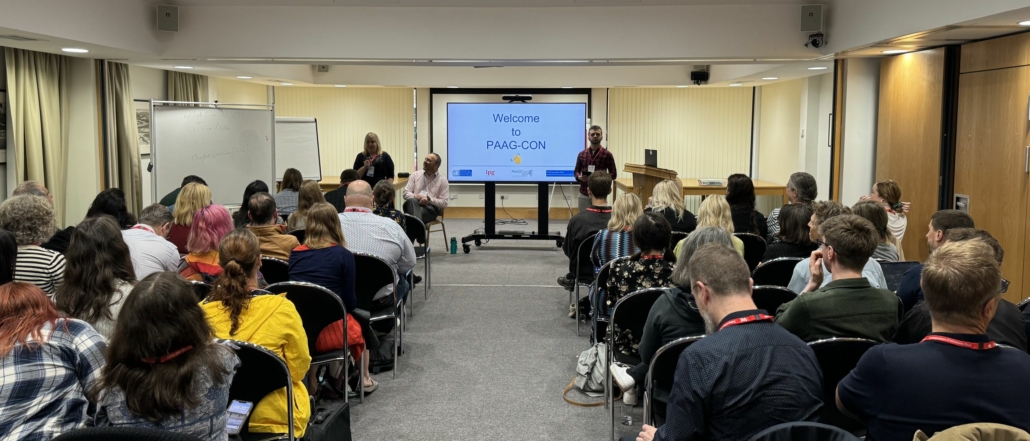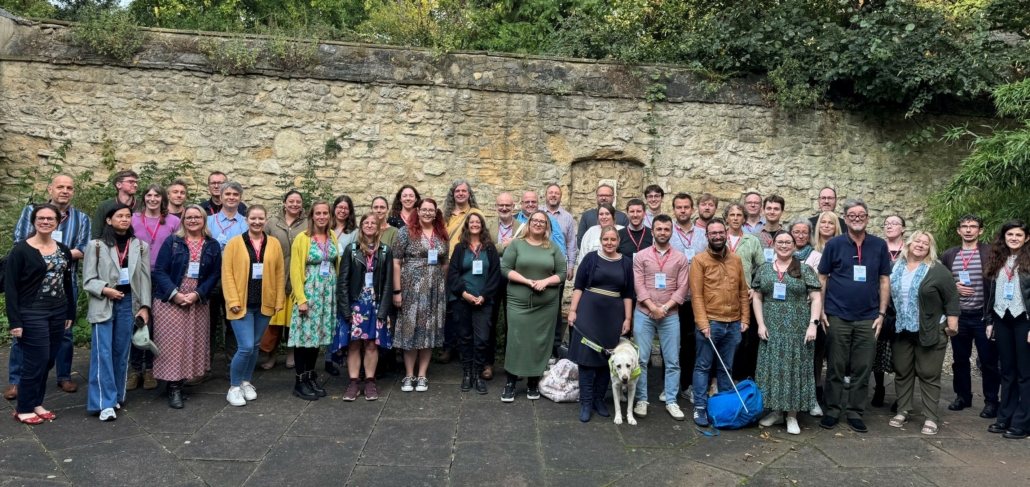PAAGCon 2024

The UK’s Publishing Accessibility Action Group held it’s first conference this year, PAAGCon, and members of the DAISY team were proud to contribute to the planning, organization and sessions at the conference itself. Set in the auspicious surroundings of St Edmunds Hall at Oxford University, this 2 day sell-out event drew people from all parts of the publishing industry.
We’re all in this together, there’s no competition in accessible publishing, just sharing.
Huw Alexander, textBOX Digital
PAAG’s chair, Stacy Scott, opened the conference, welcoming everyone to 2 days of networking, collaborating, and sharing via a packed agenda that covered a plethora of subjects. With a diverse range of experience amongst the delegates this presented an exciting opportunity for everyone to take something new away and to share knowledge and insights with colleagues from across the industry. Different levels of experience were catered for in the schedule, where complex topics were balanced with informative sessions of a more introductory level.

EAA Focus
Despite the UK no longer being part of the European Union, it was very clear in presentations, questions, and side discussions that there remains a significant amount of work in preparation for June 2025. Through events like PAAGCon it’s encouraging to see publishers coming together to share information, resources and developing a shared understanding of the importance of accessible publishing, in advance of the looming European Accessibility Act legislation. There was a clear drive from many attending to ensure their new and backlist publications could continue to be sold across Europe.
The presentation entitled titled Law and Order – Insights into key laws and regulations, given by Vayia Malamidou gave an overview of the legislation, standards and best practices for digital accessibility, to help develop strategy in the publishing sector which was particularly relevant to discussions around the EAA.
Case Studies and Practical Demos
What marked this conference out was the transparency with which publishers shared the challenges and opportunities that have been presented to them. Nicola Richardson’s presentation on user research and building personas at Elsevier, as well as sessions aimed at implementing and advocating for accessibility fostered a collaborative approach over the two days.
Accessibility is best understood and explained via demos and it was wonderful to be able to showcase some of the terrific advances being made with user demonstrations from people with lived experience. AJ Ahmed gave delegates a screen reader demo and showed first-hand some of the challenges encountered when sites don’t use accessible names, labels and landmarks correctly, as well as how to implement alt text correctly.
Richard Orme’s session Accessible Publishing 101, encouraged delegates to discover or refresh their essential knowledge of inclusive publishing and reading. This session featured first hand insights from people with disabilities who revealed how they navigate and read accessible books.
Getting into the Weeds
Lots of sessions concentrated on the intricacies of creating accessible content and there was plenty for people to take away here to implement in their own workflows.
I’m excited to apply what I’ve learned in my own work and keep the conversation going.
Tobias Giversen
There were multiple conversations around EPUB testing and demystifying EPUB, in sessions that compared this accessible format to alternatives (some of which may be more familiar) and it was terrific to have presentations that focused on more complex content. We dived into the challenges and solutions for making science, technology, engineering, math, fixed layout, and other challenging materials accessible to all readers. Practical strategies, tools, and techniques were suggested to help with STEM content.
The elephant in the room these days is the backlist and PAAGCon did not shy away from this topic as well as focusing on image description, metadata, ecommerce etc. The list is endless!

This was an event centred around collaboration and information sharing. With the onset of the European Accessibility Act in 2025, it was clear that there is much work that still needs to be done and it was wonderful for everyone to be able to focus their attentions and learn from each other.
Congratulations to all involved in organizing such a successful event.


